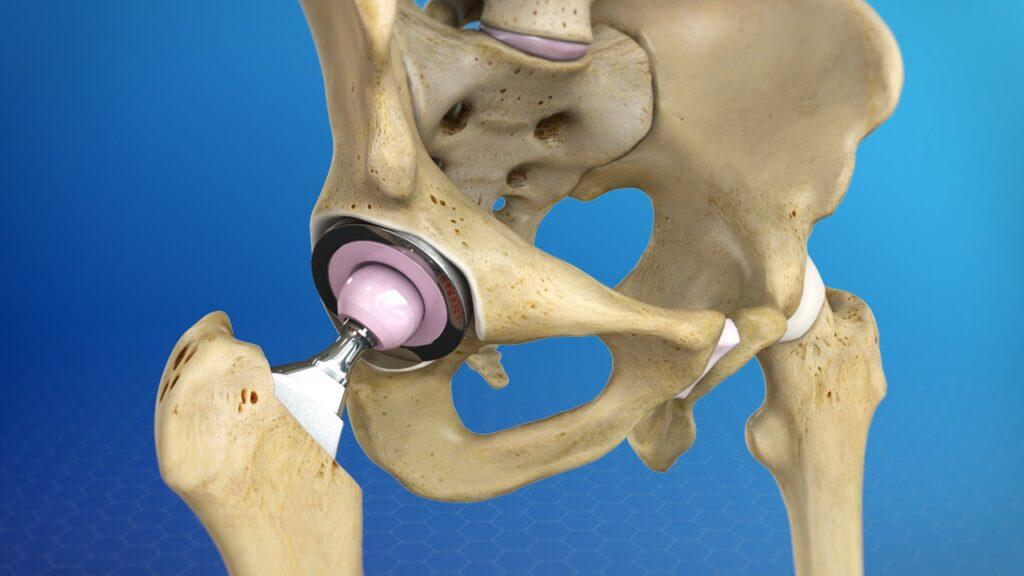Hip replacement surgery pain can be debilitating and interfere with your daily activities, leaving you wondering if it's time to consider more advanced treatment options like hip replacement surgery, but how do you know when it's the right time for hip replacement. The hip joint is a ball-and-socket joint that connects your leg to your pelvis, allowing for a wide range of motion. It is one of the largest joints in your body and plays a crucial role in your mobility, helping with activities like walking, running, and even standing up from a seated position.
When the hip joint becomes damaged or worn down, it can lead to pain, stiffness, and difficulty moving. This can occur due to various factors, including osteoarthritis, rheumatoid arthritis, injuries, or fractures. If non-surgical treatments like medications, physical therapy, or lifestyle changes no longer provide relief, hip replacement surgery might be considered.
May Need a Hip Replacement:
Several signs and symptoms can indicate that it may be time for hip replacement surgery. It’s essential to pay attention to these, especially if your quality of life is being affected. Here are some of the most common signs:
-
Chronic Pain:
Persistent pain in the hip is one of the most common reasons people seek hip replacement surgery. If you’ve been dealing with ongoing pain in your hip for several months and it doesn’t improve with conservative treatments, it could be a sign that the joint has been significantly damaged. This pain may worsen during activity and persist even when you’re resting or sleeping.
-
Reduced Range of Motion:
A decrease in your hip’s range of motion can make simple activities, like putting on shoes or getting in and out of a car, difficult or impossible. When the cartilage in the hip joint wears down or becomes damaged, the bones may begin to rub against each other, limiting your ability to move the joint freely. If you’ve noticed a significant reduction in your hip’s flexibility, it may be time to consult with your doctor about potential solutions, including hip replacement.
-
Difficulty Walking or Performing Daily Tasks:
If hip pain and stiffness are making it harder to walk, climb stairs, or do everyday tasks, it may be a sign that the condition of your hip is worsening. Many people experience a limp or find that they’re unable to walk without assistance (like using a cane or walker) due to pain or instability in the hip joint. This can be frustrating and impact your independence and overall quality of life.
-
Ineffective Pain Relief from Non-Surgical Treatments:
If you’ve tried other methods of pain relief, such as medications, physical therapy, or injections, and haven’t found lasting relief, it might be time to discuss surgical options with your doctor. Hip replacement surgery is often considered when conservative treatments are no longer effective in managing symptoms.
-
Hip Deformity or Bone Spurs:
In some cases, a hip joint that has been damaged by osteoarthritis or an injury may develop bone spurs, which can further limit the joint’s movement and cause pain. If your hip appears misshapen or you’ve noticed a change in the way it looks or feels, it could be an indication that the joint is severely damaged and may require replacement.
Consulting with a Doctor:
If you're experiencing any of the signs listed above, the first step is to schedule a consultation with an orthopedic surgeon or your healthcare provider. They will evaluate your symptoms, perform a physical examination, and may order imaging tests such as X-rays or MRIs to assess the condition of your hip joint. These tests can help determine the extent of joint damage and whether hip replacement surgery is the most appropriate option.
During your consultation, your doctor will also discuss non-surgical treatments that may still be effective, including medications, lifestyle changes, or injections to manage pain and inflammation. Surgery is typically considered when other treatments no longer provide sufficient relief or if the joint is severely damaged.
Is Hip Replacement Right for You?
While hip replacement surgery can be a life-changing procedure, it’s important to weigh the potential benefits against the risks. Your healthcare provider will help you assess your overall health, activity level, and personal goals before making a recommendation.
In general, hip replacement surgery is recommended for patients with significant hip pain, reduced function, and no improvement from other treatments. It can dramatically improve mobility, reduce pain, and help you return to activities you may have given up due to hip issues.
Conclusion:
Deciding whether you need a hip replacement is a personal decision that involves understanding your symptoms and consulting with your healthcare provider. If conservative treatments are no longer providing relief and your hip pain is impacting your daily life, hip replacement surgery may be the solution that restores your mobility and helps you get back to doing the things you love. If you’re experiencing chronic hip pain, stiffness, or reduced mobility, it’s important to seek professional advice as soon as possible. By catching the problem early, you’ll have more treatment options available and can take steps toward improving your quality of life.
-
For More Other Treatment Below Link:-
https://www.edhacare.com/ar/hospital/bangkok-hospital
https://www.edhacare.com/ar/treatments/gastroenterology/pediatric-liver
https://www.edhacare.com/ar/blogs/3-warning-signs-of-colon-cancer/
https://www.edhacare.com/ar/doctors/cosmetic-surgery-treatment-in-dubai
https://www.edhacare.com/ar/treatments/cardiology/aortic-stenosis-treatment
https://www.edhacare.com/ar/treatments/gynecology/endometriosis-treatment
https://www.edhacare.com/ar/treatments/cosmetology/skin-lightening
https://www.edhacare.com/ar/treatments/dermatology/psoriasis-treatment
https://www.edhacare.com/ar/treatments/cancer/bone-cancer-treatment
https://www.edhacare.com/ar/treatments/hepatology/liver-cirrhosis-treatment
https://www.edhacare.com/ar/blogs/liposuction-surgery-cost-in-dubai/
https://www.edhacare.com/ar/treatments/obesity-surgery/gastric-balloon
https://www.edhacare.com/ar/doctors/endocrinology-treatment-in-abudhabi
https://www.edhacare.com/ar/blogs/rhinoplasty-surgery-cost-in-turkey/
https://www.edhacare.com/ar/treatments/cosmetic-surgery/hair-transplant
